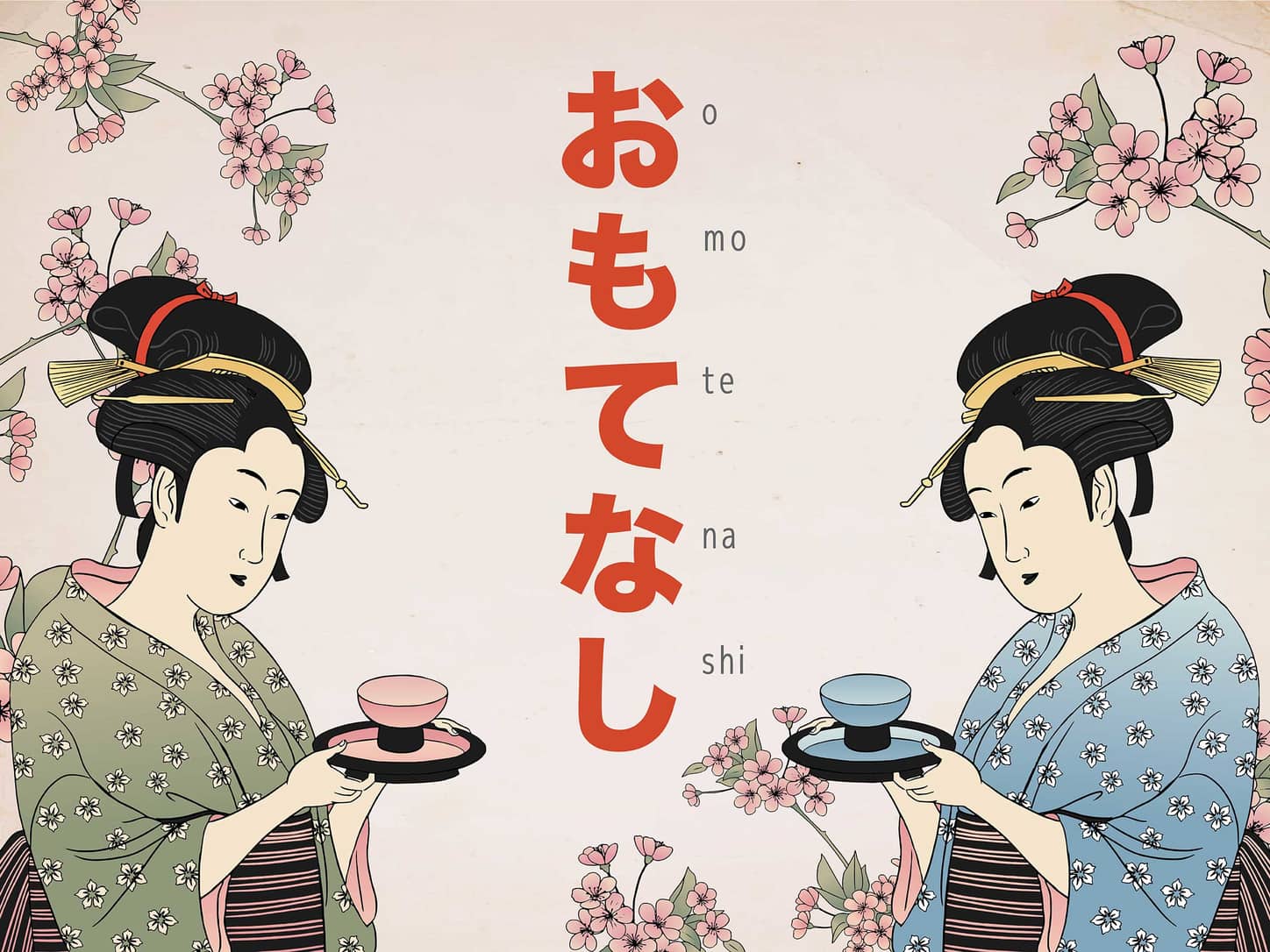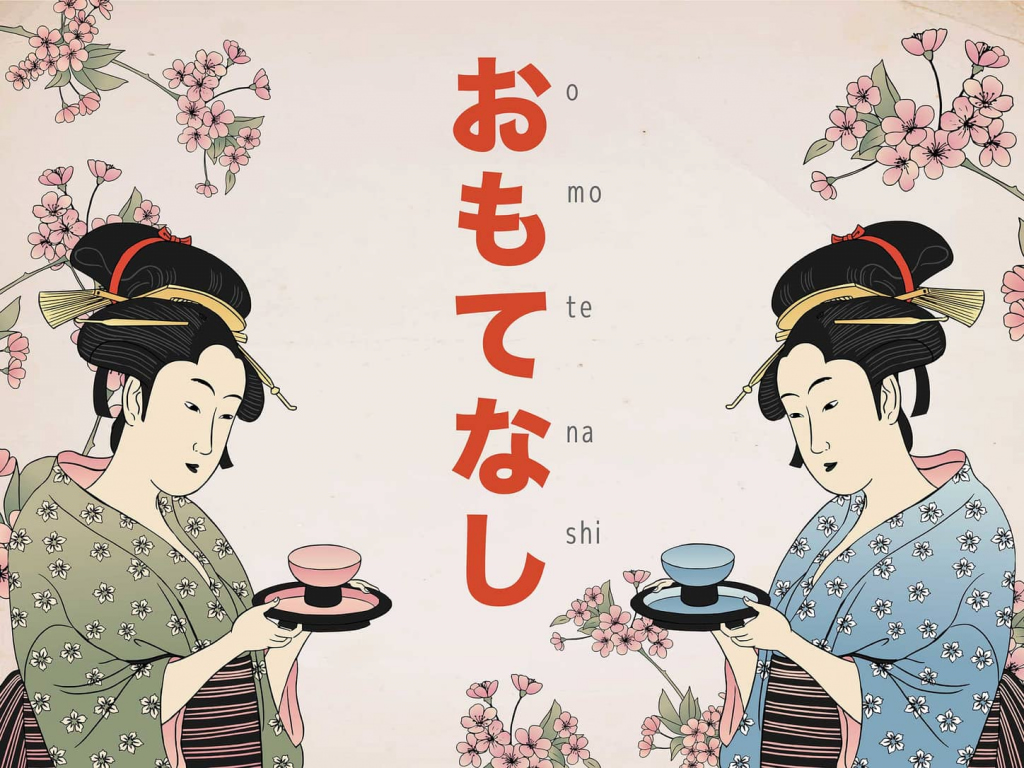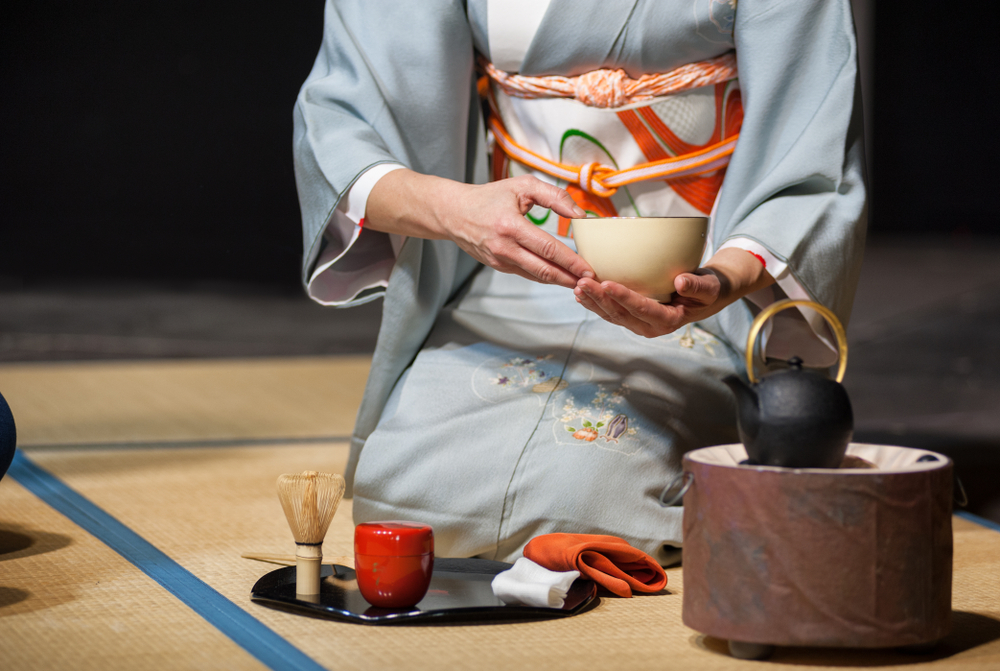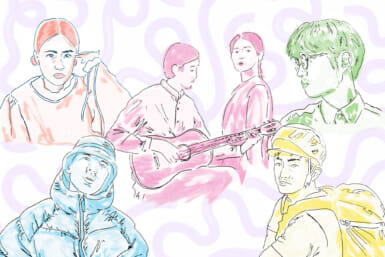According to the Oxford Dictionary, there were an estimated 170,000 words in use in the English language 30 years ago. It’s said that the average anglophone knows 1/17th of them. Wondering how many words there are in Japanese? It’s hard to say. Being an agglutinative language that borrows words from English, German and French, among others, and with slang that’s created and forgotten in the blink of an eye, there’s no sure way to quantify. In this series, we dive deeper into the etymology and meaning of Japanese words that have no equivalent in the English language.

Omotenashi. If you’ve lived in Japan for a while, you’ve certainly heard this word before. (So much that every other article on this subject starts with that very sentence.) If you don’t live in Japan, chances are it rings a bell. Across the Internet, the general consensus points the common translation of “Japanese hospitality” as brought to foreign media when Christel Takigawa gave a presentation to the International Olympic Committee in Buenos Aires in 2013: “Takigawa precisely spelled out O-MO-TE-NA-SHI as the core attribute of Japan’s legendary hospitality, and won the day, so to speak. Tokyo was picked to host the 2020 Olympic Games.”
Like mottainai and hikikomori, when speaking of omotenashi the term ‘hospitality’ falls short to what the Japanese word really implies. It’s more than a simple act of service and instead derives from what many argue is a way of life. Many make the bold claim that you can’t experience omotenashi unless you visit Japan. I wouldn’t go as far as to say that, but I will say that because it’s very much encouraged and taught here, you’ll inevitably run into a position where you’ll be on the receiving end of Japanese omotenashi.
Etymology & Philosophy
Omotenashi became buzzword almost instantaneously after Takigawa’s speech. Even its Wikipedia page for the word mentions nothing more than the source of its usage we know today, making the word look like it didn’t exist prior to 2013. There are, however, a couple of theories that point to a much more complex and rich history to omotenashi.
This 2019 NHK article explains well the first. Omotenashi would have come from traditional Japanese tea ceremony, or cha no yu, and was extended to hotels, restaurants, and other contexts following the announcement of the 2020 Olympics. There are four theories that explain how the word omotenashi in its contemporary use came to be:
- Omotenashi actually is the word “motenashi” with the prefix “o” attached to the word, adding a nuance of politeness;
- “Motenashi” would be an abbreviated expression referring to this much longer expression: モノを持って成し遂げる (read mono o motte nashi togeru). In English, this translates very loosely to something along the lines of “receive and serve with utmost compassion for your guest or customer”;
- “Motenashi” could also be a word with a stronger meaning related to entertaining or taking care of someone else, something that would be more elevated than standard hospitality;
- If we don’t assume that omotenashi uses a prefix, its closest kanji equivalent would be 表裏なし, which shares the same reading and translates to “having no public face.” In the present context, this would mean being completely transparent when serving or hosting.
It was unclear which one inspired to bring forth Japanese omotenashi with the 2020 Olympics, but the impact that the word has today is undeniable.

In Japanese, you’ll commonly see “omotenashi” written in hiragana, the first of the three writing systems used in Japanese. This is because there is no designated kanji for this particular word due to its vague etymology.
In my research for this article, however, I found an interesting online post about the use of “omotensshi” during the Heian era. I won’t bore you with the details here but it seems that even from then, there was a strong sense of responsibility in taking care of others. No matter the class, to be able to provide to those in our care with an extremely kind welcome was an art and something to strive for in our everyday lives.
The noun itself at the time reflected 5 qualities we should all work towards:
- Be intentional and careful;
- Have the will to care for others;
- Give importance to caring for others;
- Our tools reflect our personalities, so be mindful of how you use and maintain them;
- Keep in mind our actions also reflect our personalities.
All things considered, I don’t think that translating “omotenashi” to “Japanese hospitality” or even “service” as I’ve seen it is accurate. The generosity and selflessness that is at the heart of true omotenashi are completely lost. One could argue that even today, real omotenashi is rare, but that’s a conversation for another time.
I did, however, want to stress one important point.
Omotenashi Today
No matter how you feel about omotenashi, it’s an important part of Japanese culture and deeply rooting in how Japanese society functions. It lays a foundation upon which the country’s complex etiquette is built. Many are under the impression that you can experience omotenashi everywhere in Japan, but that’s simply not the case. Restaurants and cafés have some practices that are derived from omotenashi, but waiters and baristas aren’t necessarily passionate about their job. How many of us work in the service industry to pay our student loans?
So where can you experience omotenashi? Well, it can sometimes be a matter of luck. Omotenashi can be anywhere, as long as you’re hosted, served or helped by a person who is passionate about what they do. Whether it’s pouring a cup of coffee or making sure you have a comfortable stay. One can even say companies practice omotenashi if they are innovative and careful with the development of new products, like the ones featured in our Shop Japan series.
At the end of the day, it’s a little bit like love. You’ll certainly feel the omotenashi whenever you are on its receiving end, it’s pretty hard to ignore.










